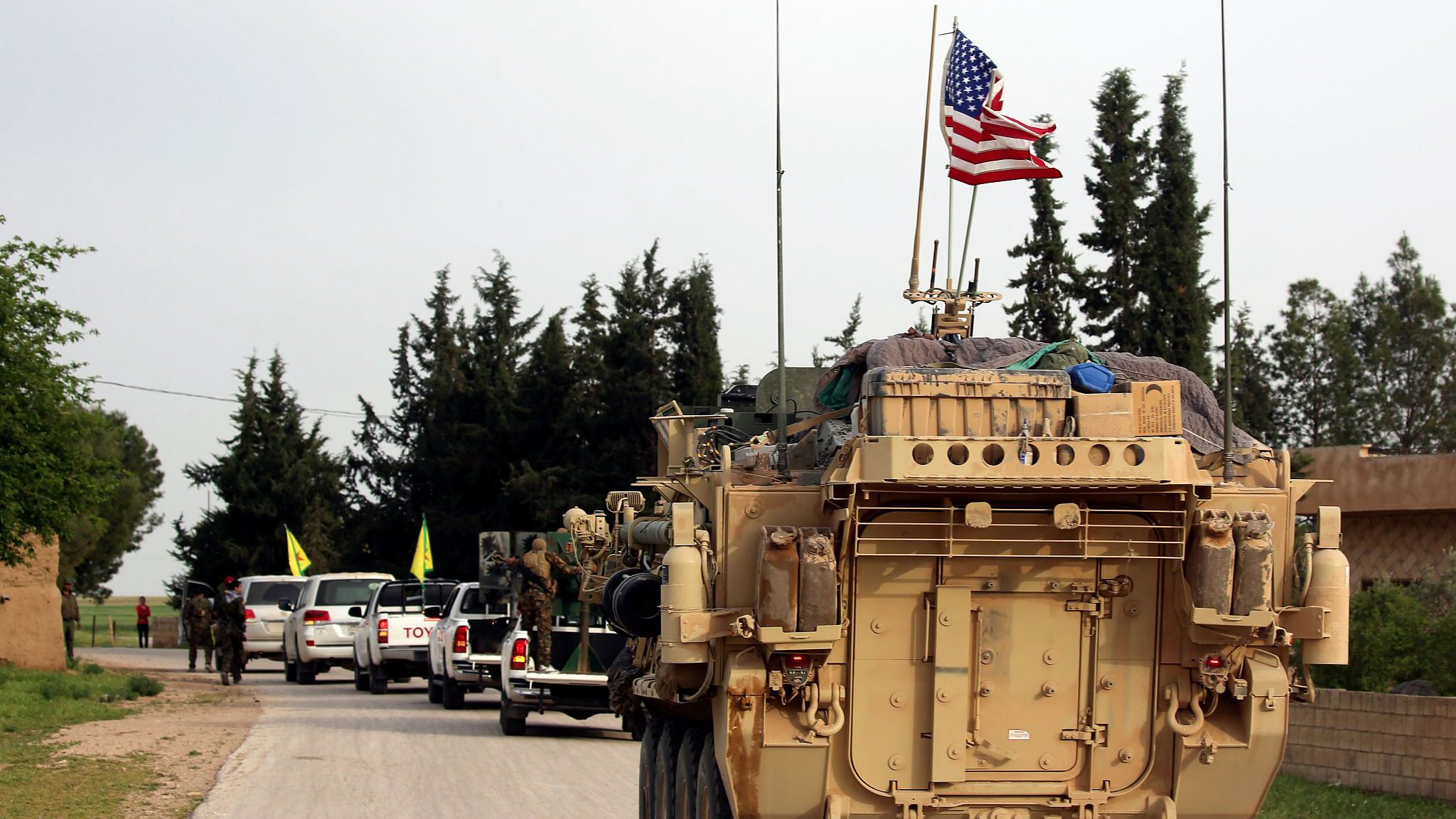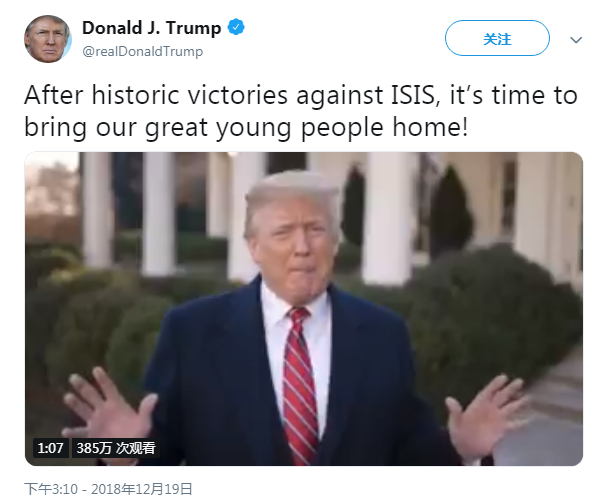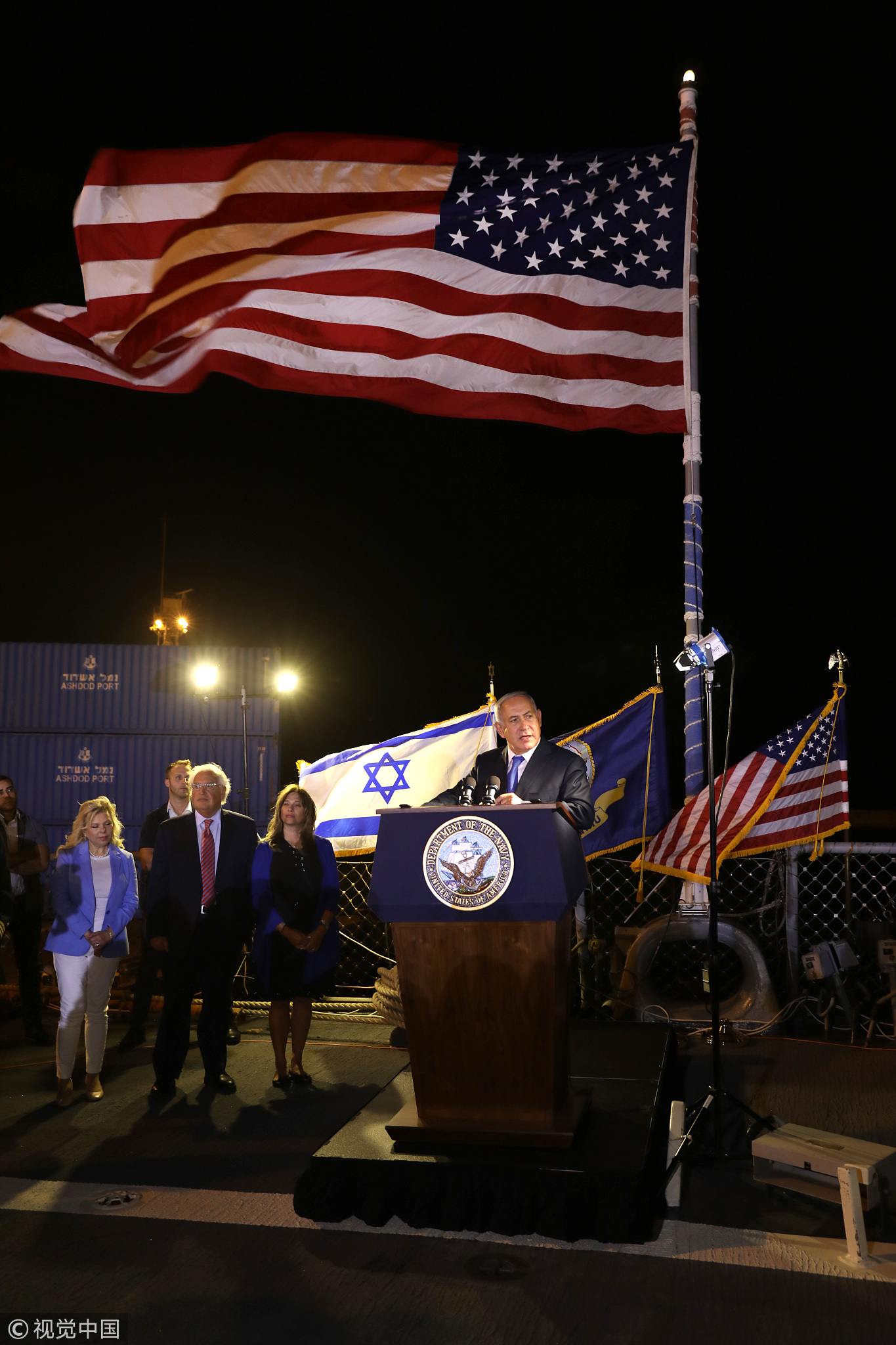
Opinions
12:15, 21-Dec-2018
Opinion: Why did Trump decide to withdraw from Syria?
Updated
11:33, 24-Dec-2018
Wang Jin

Editor's note: Wang Jin is a research fellow at the Charhar Institute as well as at the Northwest University of China. The article reflects the author's opinion, and not necessarily the views of CGTN.
On December 19, U.S. President Donald Trump has announced the withdrawal of 2,000 American troops from Syria. It means the end to the American military campaign that aims to destroy the Islamic State of Iraq and the Levant (ISIL). President Trump pointed out that the U.S. military campaign is successful. He tweeted on December 19: "After historic victories against ISIS (ISIL), it's time to bring our great young people home!"
Trump's decision of withdrawing U.S. military forces from northern Syria is part of his deal with Turkish President Recep Tayyip Erdogan, and might lead to a new round of competitions and conflicts between regional powers over Syria.
Trump's decision was revealed when Erdogan delivered a speech to his supporters in Turkey days ago, and Trump once expressed his willingness to withdraw from Syria early this year. Based on Trump's decision, U.S. diplomats in Syria, especially in northern Syria has started their process of withdrawal, while it might take nearly half a year before all the U.S. military presence in Syria comes to an end.

Screenshot from Trump's Twitter account
Screenshot from Trump's Twitter account
After the Syria civil war erupted in 2011, the U.S. has always been seeking a reliable regional partner to protect its interests. Washington once believed that the Syria civil war bears a striking resemblance to that in Libya. The unified opposition forces, with the help of the West, would easily defeat the government forces. In the context, U.S. once works as supportive to the opposition group such as Syrian National Transitional Council, Syrian National Coalition, and the U.S. even organized the Free Syria Army for the purpose of winning the battle against Syrian government forces.
However, Washington's plan over Syria failed to "come true" its dream. Instead, the opposition groups are getting more weakened and divided compared to the central government.
Meanwhile, most of U.S. weapons were transferred to extremists such as ISIL and Al-Qaeda branches in Syria by local militias. U.S. strategy in Syria fell through. The Syrian Kurds led by Syrian Kurdish Democratic Union Party (PYD) have become the only ally of the U.S. in the region.
Given the pressing military pressure from Turkey against northern Syria, once the U.S. military finishes their withdrawal, a massive military offensive co-launched by Turkey and its supported rebels will be highly likely. Turkey perceives the PYD as the branch of “terrorist group,” the Kurdistan Workers' Party (PKK) at home, and launched two major offensives in northern Syria in 2016 and early this year to squeeze the presence of PYD in northern Syria. With the poor capabilities and limited weapons, the Syrian Kurds led PYD and other local militant groups might not be able to resist the offensive of Turkey.

Israeli Prime Minister Benjamin Netanyahu speaks from the deck of the USS Ross in Ashdod, Israel, October 11, 2018. /VCG Photo
Israeli Prime Minister Benjamin Netanyahu speaks from the deck of the USS Ross in Ashdod, Israel, October 11, 2018. /VCG Photo
If Turkey launches the military operation in Syria, that would be damaging to America's interest in the region. Syria government still insists its legal claims over all Syrian territories, and the PKK and Syria government once kept a very close relation from the 1980s to mid-1990s. Northern Syria was once an important base for PKK militias to infiltrate into southern Turkey to launch attacks. After Syria civil war erupted in 2011, Syria government forces withdrew from northern Syria and Syrian Kurds led by PYD became the dominating power in that area.
Many analysts believe that the PYD is a close ally of the Syrian government in Syria civil war. If Turkey intends to dominate the whole northern Syria, Syria government might offer assistance to PYD. If Syria government is involved, Iran and Russia might also have to reconsider their policies in Syria and make choices between maintaining neutral and supporting the Syrian government.
Therefore, Trump's decision of withdrawal from northern Syria might not only significantly influence the future landscape of the war-torn state, but could also add new variables into the future of Syria peace process. Israel Prime Minister Benjamin Netanyahu expresses his concerns over Trump's decision in Syria, as the ties between Turkey and Israel are strained over the Israel-Palestine peace process.
GivenTurkey's sympathy to the Islamic extremist groups in Syria, Israel worries that the expansion of Turkey's influence in Syria might help turn northern Syria into a hub and base for extremists and terrorists that may impose threats to Israeli security. Russia President Vladimir Putin also expresses his concerns over northern Syria and believes that it might take a longer than Trump's expectation before all U.S. military finally leaves the area.
Trump's decision of withdrawal from Syria might significantly influence the future landscape of Syria peace process, and might further threaten the relationship between Russia, Turkey and Iran over Syria issue. Meanwhile, to give up PYD, an important U.S. regional partner, will weaken U.S. credit and will surely decrease U.S. influence in the Middle East.
(If you want to contribute and have specific expertise, please contact us at opinions@cgtn.com.)

SITEMAP
Copyright © 2018 CGTN. Beijing ICP prepared NO.16065310-3
Copyright © 2018 CGTN. Beijing ICP prepared NO.16065310-3